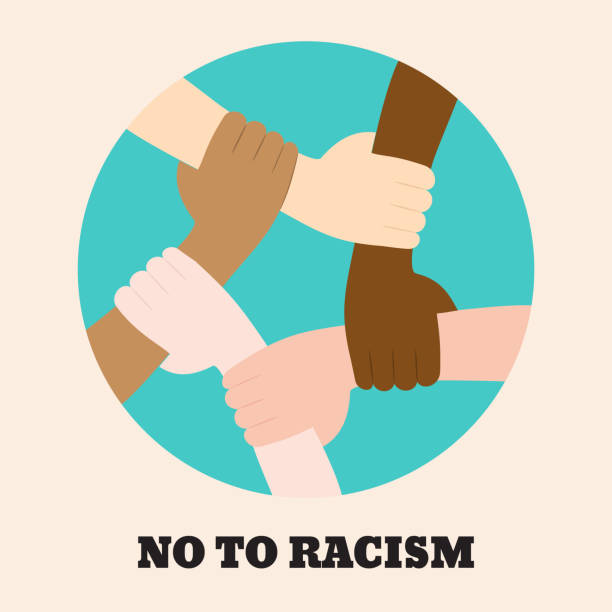
Racism is universally condemned, but antisemitism “uniqueness” debate has become sterile and constitutes an “intellectual terrorism”. The question is why? Does suffering from racism have universal or unique feelings?
In contemporary society, racism remains a pervasive and deeply ingrained issue that continues to shape individual experiences, societal structures, and global dynamics. While the concept of racism is widely acknowledged, its uniqueness lies in its multifaceted nature, encompassing historical, cultural, institutional, and individual dimensions. Understanding the complexity of racism requires a nuanced examination of its various manifestations and impacts across different contexts.
One distinctive aspect of racism is its historical roots, which span centuries and have influenced the development of societies worldwide. From colonialism and slavery to apartheid, theft of land, illegal settlements and segregation, the legacies of these oppressive systems continue to shape social hierarchies, power dynamics, and intergroup relations. The enduring effects of historical injustices underscore the interconnectedness of past and present forms of racism, highlighting the need for acknowledgment, reconciliation, and reparative actions to achieve freedom, justice and peace.
Furthermore, racism manifests differently across diverse cultural, ethnic, and national contexts, reflecting unique historical, political, and social dynamics. While overt forms of racism, such as explicit discrimination and hate crimes, are widely condemned, subtler manifestations persist in the form of systemic inequalities, microaggressions, and unconscious biases. These covert expressions of racism often perpetuate structural barriers and reinforce existing power imbalances, making them challenging to identify and address.
Moreover, racism operates at both the institutional and individual levels, influencing policies, practices, and attitudes within various social institutions. Institutions such as education, healthcare, criminal justice, and employment often reflect and perpetuate racial disparities, resulting in unequal access to opportunities, resources, and services for marginalized groups. Concurrently, individual attitudes and beliefs about race shape interpersonal interactions, perceptions, and behaviors, contributing to the reproduction of racial stereotypes, prejudices, and discrimination.
The uniqueness of racism also lies in its intersectionality, as it intersects with other forms of oppression, including sexism, classism, ableism, and homophobia. Individuals who belong to multiple marginalized groups often experience compounded forms of discrimination, amplifying their vulnerability and limiting their access to social, economic, and political opportunities. Intersectional approaches to combating racism recognize the interconnected nature of oppression and advocate for inclusive strategies that address the intersecting dimensions of identity and inequality.
In confronting the uniqueness of racism, efforts to dismantle systemic racism require a comprehensive and multifaceted approach that addresses its root causes, structural dynamics, and intersecting inequalities. This includes implementing anti-racist policies, promoting diversity and inclusion, fostering intercultural understanding, and challenging institutionalized forms of discrimination and above all ending oppression, theft and occupation of others’ land.
Additionally, fostering empathy, allyship, and solidarity across racial and ethnic lines is essential for building collective resistance against racism and advancing social justice.
Recognizing the uniqueness of racism requires acknowledging its complexity, diversity, and enduring impact on individuals, communities, and societies. By confronting racism in all its forms and dimensions, we can work towards creating a more equitable, inclusive, and just world for all future generations without exemption.
On the hand, the exploitation of the concept of the “uniqueness of racism” by certain groups to perpetuate discrimination against other minorities is often regarded as a form of bullying and intellectual terrorism. This manipulation can lead to the intimidation of individuals, risking their employment and stifling their ability to speak out against apartheid, discrimination, injustice, and the fight for freedom.
Discussing the truth about Israeli atrocities in Gaza should be welcomed, respected, and supported as a means to aid the oppressed and hold perpetrators of genocide accountable. Exposing these truths should not be met with punishment or labeled as antisemitism or extremism.

I like this exploration of racism and particularly the part on intersectionality and exploitation of racism for the benefit of bullying, threatening and sacking the employees who dare to speak out about the genocidal aspect of Israel’s apartheid.
Absolutely brilliant, and it really reads like an academic piece of work and thank you for that!
This article is very good, but it could be stronger by highlighting political agendas and the media’s role as major players in monopolizing the concept of racism by a certain group, rather than a historical entitlement or any form of superiority. Racism cannot be fragmented; it is racism regardless of any group.